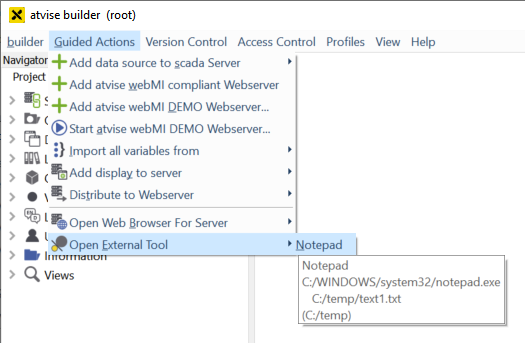Introduction¶
Menu bar
Below you will find the submenus of the menu bar and descriptions of how to use them:
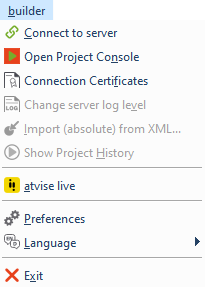
Connect or disconnect to/from a server
Opens the Project Console
Opens the certificate management for connection certificates
Changes the server log level
Imports an XML document
Shows your project's history
Opens atvise live in a tab
Opens the preferences dialog
Change builder's language
Closes the builder
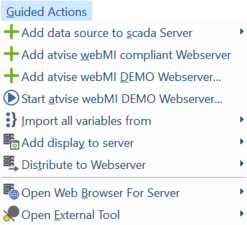
Adds an OpcUA, OpcCOM or webMI source to a scada server
Adds an atvise webMI-compliant server to your project
Adds an atvise webMI demo web server to your project
Starts an atvise webMI demo web server in console mode
Imports all variables from a specific source
Adds a display to a specific server
Generates the complete visualization and sends it to a target device
Opens the visualization in your standard browser
Opens an external tool

Exports the project's entire address space
Imports the project's entire address space
Opens the configuration dialog for defining the base directory

Opens the access control editor for assigning access rights
Opens the settings dialog
Opens the user editor for the current user

Switch between the profiles which were added in the preferences dialog
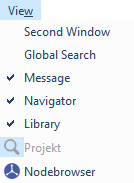
View or hide the Second Window for editing displays, scripts, etc.
View or hide the Global Search window
View or hide the Message window
View or hide the Navigator window (contains the Project and Node Browser tabs)
View or hide the Library window
View or hide the Node Browser tab
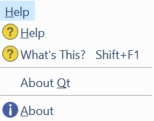
Opens the atvise help file
Context sensitive help for certain areas
Version information and further information about Qt
Information about the atvise builder
Preferences
With the help of the preference settings, you can customize the builder´s setup to your needs:
General Preferences
Under general preferences you can
have the atvise builder remember the size of the parameter dialog
set a default profile
have the builder remember a specific number of the last-connected servers
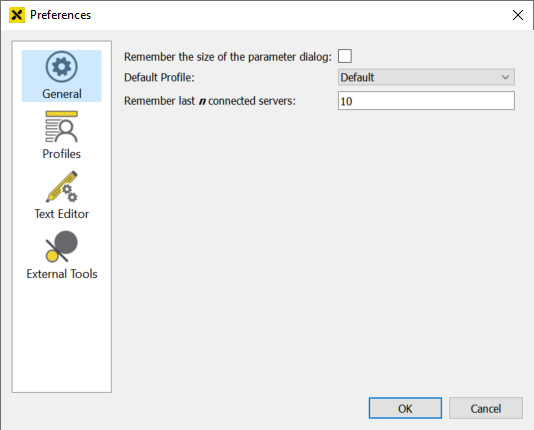
Profiles
- Root Nodes:
Customize the tree view's items according to your preferences by selecting an item and using the arrows in the middle to add it to or remove it from the target.
- General:
Show or hide the node browser in the "View" menu
Allow or disallow webMI type and instance manipulation
- SVG Editor:
Show or hide different toolbar or menu items
Enable bindings
Allow catalog editing
Show or hide default transformation items
- Dynamics:
Allow or disallow simple dynamics
Show or hide dynamics and identifier
- Attributes:
Enable or disable SVG attributes
Allow or disallow manual overwrites
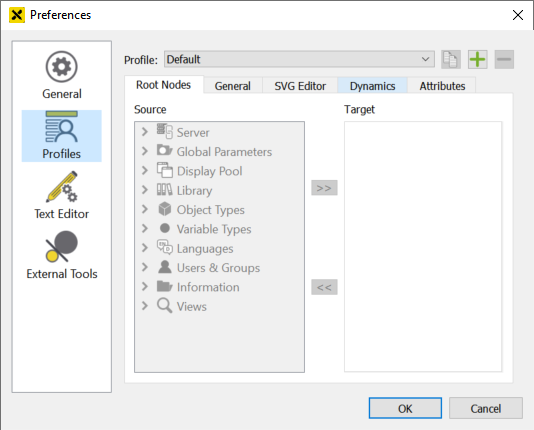
Text Editor
- Font & Colors:
Define font size, style and color.
- Behavior:
Enable text wrapping
Show or hide line numbers, whitespaces and tabs
Set the tab size
Enable or disable highlighting of the current line
Show or hide information and errors
Show or hide matching parentheses
Show or hide function declarations
Enable or disable automatic closing of brackets and quotes
Enable or disable code completion
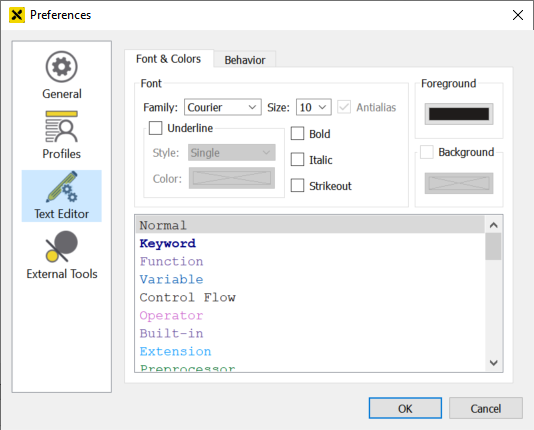
External Tools
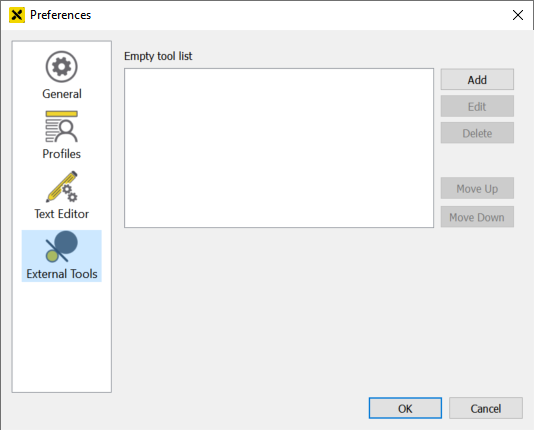
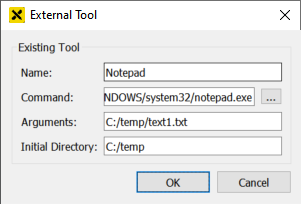
Here you can collect external Tools/Applications which can be started from the menu.
Enter a unique name that will be displayed in the menu
Command, that starts the tool/application (e.g. the path of the *.exe-file)
Optional arguments for the tool
Optional working directory for the tool
Starting external tools from the menu:
Names are listed in order given in dialog.
Command will be called.
